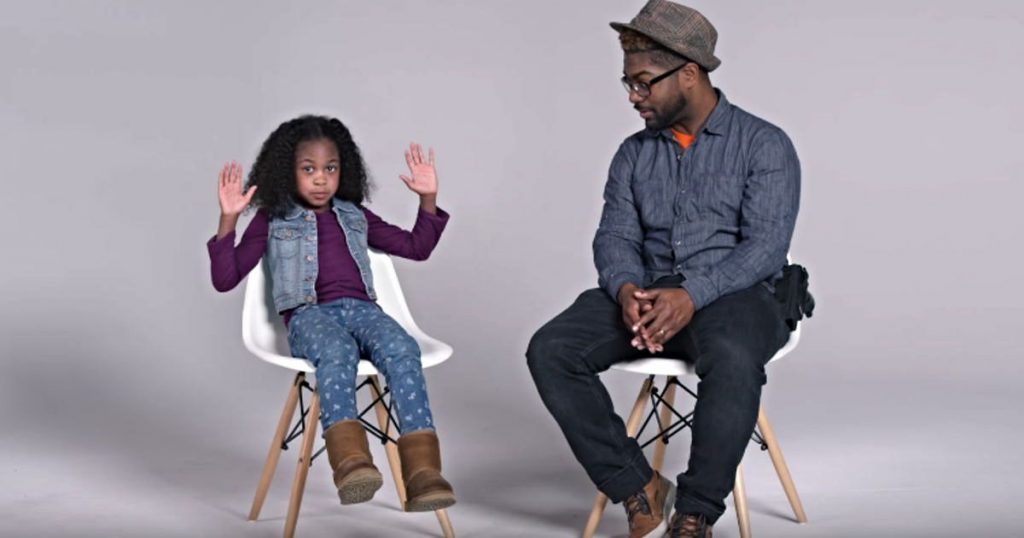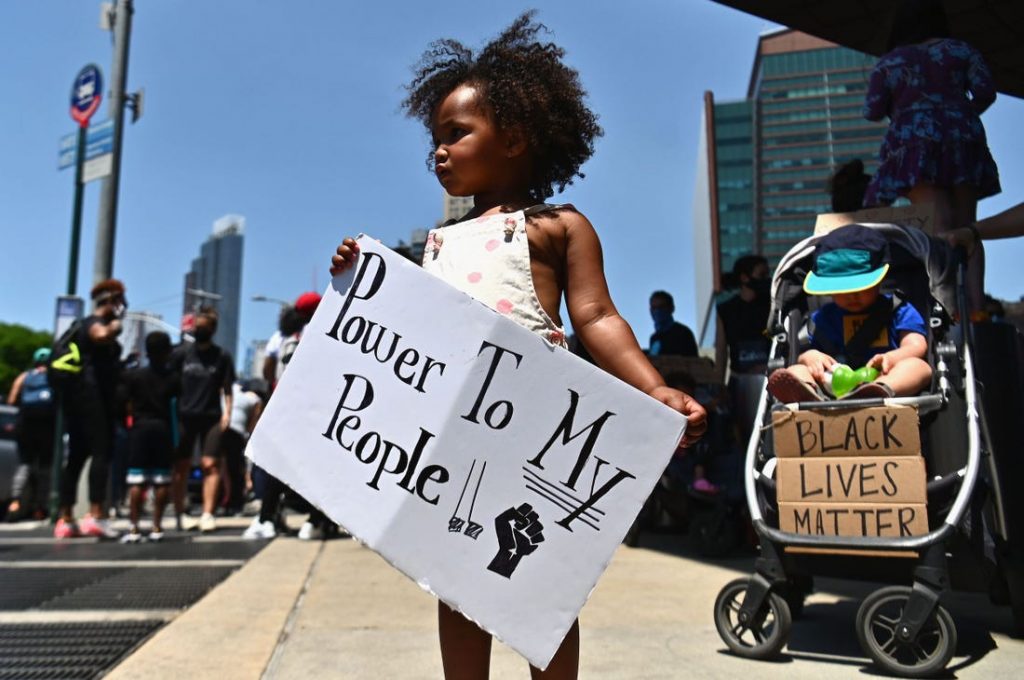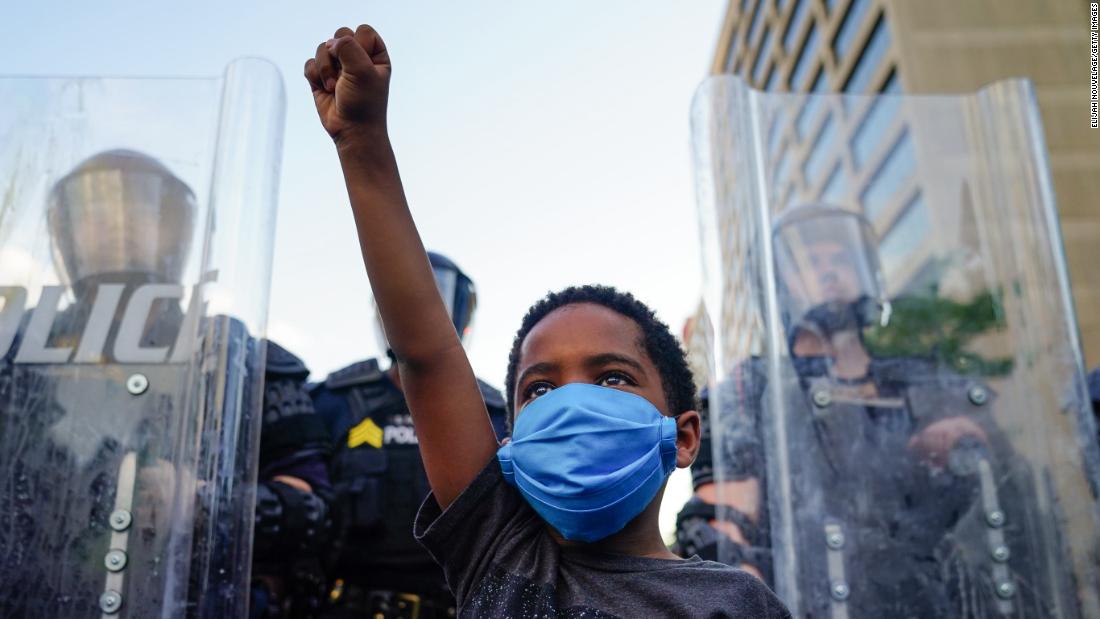Systemic racism plagues the foundation of the United States both quietly and vocally. Unfortunately, the current sociopolitical climate houses a welcome narrative of vocally expressing these racist ideologies. Over the last four years there has been an increase in racially based hate groups by 55%, fueling the fire of hatred and violence towards targeted groups. This is largely due to the current administration in political office and their attitudes towards these organizations and towards minority groups. So, how does all of this affect the lives of citizens in these minority groups? People of all ages are victims to these prejudices, including young children and teens.
It is no secret that some children in this society are more privileged than others. White children have the benefit of growing up in their skin which eventually turns into what so many individuals have referred to as “white privilege.” This term became popular after 1988 when a writer and scholar named Peggy McIntosh wrote a piece titled: White Privilege: Unpacking the Invisible Knapsack. She insisted that white people should “check their privilege” and listed 50 examples of how one may do so. Examples included “I can turn on the television and see my race widely represented” and, “I do not have to educate my children about systemic racism for their own daily physical protection”, and other statements of the like. The term white privilege has remained consistent in our society but has met a large amount of backlash. Teaching Tolerance, an educational resources organization mentions this in one of their writings. Many white people who have faced financial struggle or grew up in harmful environments hear “white privilege” and think the term suggests that they have never struggled. This is not the case. The privilege simply refers to the fact that their skin color has not been a struggle while so many individuals do not have that luxury.
What is “The Talk?”
One of the highest privileges white people possess is raising white children. White parents do not have to give their children “the talk” that black parents must give their children. The talk refers to the conversation every black parent has with their children about system racism. The talk typically covers police brutality, racial profiling, societal stereotypes and racial disadvantages. There are countless examples of “the talk” with just one Google search. One example is Sam Sanders from NPR when he sat down and discussed this subject with Kenya Young, also from NPR. She has three black sons; two teens and a young child. She mentions telling the elder sons not to wear their hoods, to keep their hands out of their pockets, and several other instructions just to go hang out at the park. In many ways systemic racism forces kids of color to grow up quite quickly. They begin to worry about things that kids should never have to worry about; that no one should have to worry about.
The talk has been a normalcy in black households in the U.S. for generations, tracing back to the Civil Rights Movement and beyond. ABC news correspondent Pierre Thomas discussed how his mother gave him the talk and how he has had to have the same conversation with his own children. Several mothers were interviewed in the same news segment who are currently raising black children, and were asked to speak on the topic in the wake of the murder of George Floyd earlier this year. George Floyd was a black Minneapolis resident who was suspected of using counterfeit cash at a local store. The cops were called to the scene and Floyd resisted to get in the squad car, resulting in the officer pinning Floyd to the ground with his knee placed on Floyd’s neck for 8 minutes and 46 seconds. All the while, Floyd repeatedly exclaimed that he could not breathe. His last moments were spent calling out for his mother. The mothers interviewed by ABC stated that watching the footage of Floyd’s death was “gut wrenching” and said that type of situation is “their worst fear as a mother of black children.”
Another example is from Cut, a popular storytelling YouTube channel, who released a video in 2017 of several parents with their black children discussing the police. The video went viral, producing millions of views and shares. A father is featured with his 8-year-old daughter and she demonstrates how she is to hold up her arms in police presence and announce that she is not armed. A mother speaks to her teenage daughter, telling her, “Do whatever it takes to get back home to me.” The comment section indicates that this video introduced so many people to the strife and anguish that black parents face in this country.

2020: A Shift in the Movement
The Black Lives Matter movement first ignited in 2013 after the acquittal of officer George Zimmerman who shot and killed 17-year-old Trayvon Martin in Florida. Perhaps the most noted catalyst for surging the Black Lives Matter movement is Colin Kaepernick. In August of 2016 Kaepernick, an NFL quarterback, was filmed sitting on the bench during the national anthem. He was engaging in protest against police brutality against black citizens in the wake of several deaths at the hands of police in preceding months. This received a massive response from the sports world and the entire country. Many of his fellow players across the league began following suit and kneeling during the anthem, which is still happening to this day.
The current administration in the White House has had a less than satisfactory response to BLM and police brutality. President Donald J. Trump spoke at one of his presidential rallies in 2017 name-calling black NFL players with expletives and stated that they should be fired for protesting. Recently, the President has spoken on the protesters in Minneapolis where George Floyd was killed, calling them “thugs”, and not offering solutions of peace. Even more recently, two weeks ago, the President was asked multiple times to condemn white supremacy. He did not. He has publicly spoken about white supremacists several times referring to them as “good people.” This narrative is what stirs up anger in so many citizens. Many feel so inadequate, and feel like their voices are not being heard by the highest office in the country. The violence, by protesters and police, will unfortunately continue if the tone of voice doesn’t shift and if real change doesn’t occur.

The responses of citizens to these racially fueled confrontations have been both sides of the coin; many people side with the police and many side with the victim. Depending on what background one comes from tends to set what response they have. For example, those who have experienced this type of racial profiling will have a completely different reaction than someone who has not. Likewise, someone with family members or close friends who serve on the police force would have a different reaction. This divide has become more intense in the last 6 months since the murder of George Floyd and others who have suffered similar fates. Protests and marches have been occurring almost nightly since these instances occurred. Many of these protests have been met with counter-protests from those who oppose the BLM movement, causing an even greater divide. Citizens are emotional, angry and scared. This in turn has led some of these protesters to turn violent, participating in vandalizing and looting businesses. One should note, however, that the vast majority of these protests/marches have been peaceful. So, how can this country come together to keep the peace? How can this generation and the ones after us secure a safer nation for black Americans?
It’s time for “The Talk” to become irrelevant
Millenials and Gen Z are fighting and persisting for a better future for Black Americans and all targeted groups. The protests this year alone have indicated that, and have indicated that future children will be raised much differently than generation’s past. “The Talk” will hopefully become a thing of the past. Right now however, it is important that human rights activists focus on children currently being raised in this climate. Be an ally. If you have white privilege, use it for good. Use your voice and try to educate your family and friends on the struggles of systemic racism. It is important for young adults to set an example, for children of color and for white children. We need to teach white children to be allies to their black friends. That is how we build a more accepting country; raise the kids to practice love and acceptance above everything else.
Volunteering locally can be a stepping stone in healing the nationwide plague of systemic racism. Helping out at local children’s centers and organizations like The Boys and Girls Club of America are ideas to consider. Something that can change the life of a young person is having a mentor in their life that they can learn from and depend on. Big Brothers Big Sisters of America is the largest mentor volunteer program in the United States. Becoming a mentor and showing black kids that their voices are heard and teaching them to have a positive self-image could change everything for so many kids. These future leaders need to understand that the future does not have to reflect the present or the past, and it’s up to us to show them the way.
References
Dillard, Coshandra, et al. “What Is White Privilege, Really?” Teaching Tolerance, 2018, www.tolerance.org/magazine/fall-2018/what-is-white-privilege-really.
Furber, Matt, and Audra. “What Happened in the Chaotic Moments Before George Floyd Died.” The New York Times, The New York Times, 29 May 2020, Retrieved from: www.nytimes.com/2020/05/29/us/derek-chauvin-george-floyd-worked-together.html.
McIntosh, Peggy. White Privilege: Unpacking the Invisible Knapsack. Louisville Anarchist Federation and No Borders, 1989.
“Raising Black Children in America.” ABC News, ABC News Network, Retrieved from: abcnews.go.com/US/video/raising-black-children-america-71032685.
“Trump to Anthem Protesters: ‘Get That Son of a b—- off the Field’.” NBC Sports, 23 Sept. 2017, Retrieved from: www.nbcsports.com/bayarea/49ers/trump-anthem-protesters-get-son-b-field.
Wilson, Jason. “White Nationalist Hate Groups Have Grown 55% in Trump Era, Report Finds.” The Guardian, Guardian News and Media, 18 Mar. 2020, Retrieved from: www.theguardian.com/world/2020/mar/18/white-nationalist-hate-groups-southern-poverty-law-center.
IVolunteer International is a 501(c)3 tech-nonprofit registered in the United States with operations worldwide. Using a location-based mobile application, we mobilize volunteers to take action in their local communities. Our vision is creating 7-billion volunteers. We are an internationally recognized nonprofit organization and is also a Civil Society Associated with the United Nations Department of Global Communications. Visit our profiles on Guidestar, Greatnonprofits, and FastForward.


